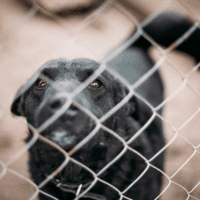November is Pet Diabetes Awareness Month. Diabetes is a very dangerous disease, one that affects both people and pets. It’s of course crucial for you to bring your furry pal to the vet every year for screenings and panels. However, it’s also good for you to know some of the signs to look for. A local vet lists some of the more common signs of diabetes below.
Increased Water Consumption
Diabetic pets are often continually thirsty. You might notice Fluffy or Fido draining their bowl quickly, or drinking out of the toilet bowl. (Diabetic cats may try to stick their noses into your water glass, but that isn’t really much to go on in and of itself, as perfectly healthy kitties do this as well.)
Frequent Urination
As one might expect, frequent urination goes right along with increased water intake. Your dog may have accidents in the house, while Fluffy may not make it to her litterbox.
Disappearing Food
Does your four-legged friend scarf down their food the moment you feed them, and then act like they are starving? Does Fluffy have a meltdown whenever she spots the bottom of her food bowl? Diabetes could be to blame.
Weight Loss
Diabetic pets often lose weight, even if they are eating enough to account for a whole other pet. It’s a good idea to weigh your furry buddy regularly to monitor their body weight.
Poor Coat
Diabetes can also take a toll on your pet’s pretty fur. Your four-legged friend may look dry, dull, or greasy. Fluffy may stop grooming herself, which will make her fur look even more unkempt.
Lethargy
We know, some of our patients are just couch potatoes by nature. But if your pet seems to be sleeping more than usual, talk to your veterinarian.
Recurring Infections
Another marker to look for are infections that won’t heal properly. This includes skin problems, UTIs, and others.
Clouded Eyes
This one is unique in that, unlike the other things we’ve mentioned, it only applies to dogs. However, it is something to watch for with Fido.
Tips
If you notice any of these warning signs, or any other unusual behavior, contact your vet right away. The sooner an issue is caught and treated, the better!
Do you know or suspect that your pet may have diabetes? Contact us today! We are dedicated to offering great care!






